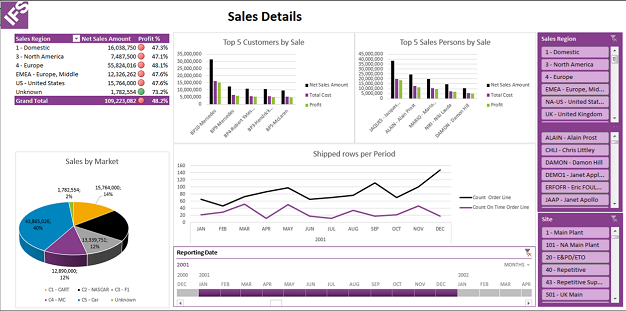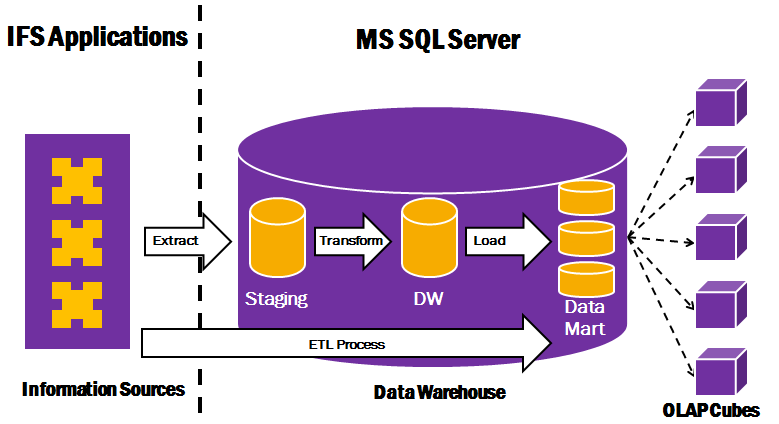
IFS Analysis Models consists of a framework that supports an ETL process, transferring data from IFS Applications to a Data Warehouse hosted in MS SQL Server.
ETL means Extract, Transform and Load and it is a standard definition for the process where data is transferred from a source system to a data warehouse in a target system. The idea is to transfer information with rather high complexity into a data warehouse where data is calculated, transformed etc. to define a pure star schema model. The star schema model is perfect as a source when building OLAP cubes.

The ETL processing is handled by SSIS packages. SSIS means SQL Server Integration Services and is a MS framework that servers as a platform for data integration and workflow applications. It features a fast and flexible data warehousing tool for ETL processing.
The Analysis Models consists of SSIS packages handling:
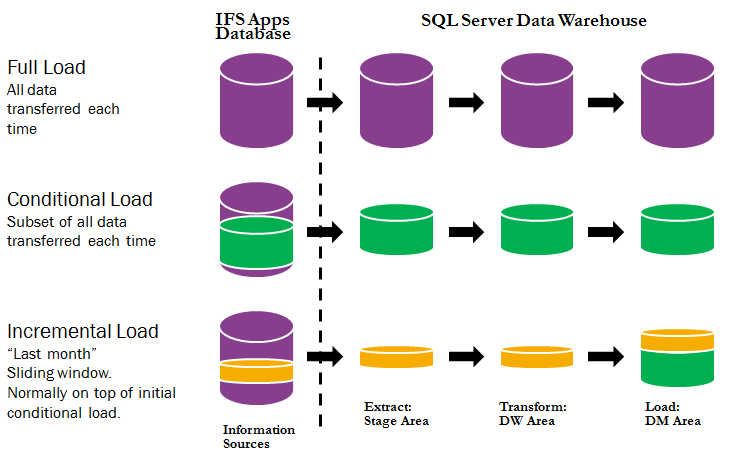
To support an easy setup of the data warehouse part of IFS Analysis Models, there is a specific IFS Analysis Model Installer, running on SQL Server that acts as a host for the installation. The following is performed:
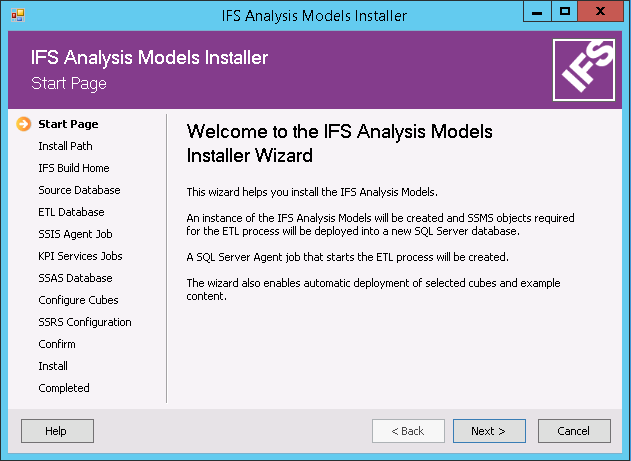
The ETL process can be executed in different ways. Each load can be performed as a full load which is also the default load type.
The ETL process can however be configured to use full, conditional or incremental load for most of the supported sources, except for dimensions that do not support incremental load.
In most cases it is enough to perform a full load of all involved dimensions.
For Facts it is a bit different since the facts represent transactional data and that might mean transfer of large number of transactions. The performance of the accessed Information Source views will also affect performance. To support different load behavior there is a configuration tool called IFS Analysis Models - SSIS Config Utility.
For facts this means that it is possible to run the first initial load in the following ways:
After having performed the initial load, subsequent loads can be performed as a incremental load, meaning that only a part of the source transactions are transferred to the Data Warehouse and all existing transactions in the DM (Data Mart) are kept as is, leading to update or add of transactions.
Note: Incremental load in this case will only be based on an assumption, i.e. an incremental criteria has to be supplied but it can be rather tricky to define an accurate criteria.
If true incremental load is supported then the tool displays the last max changed data for the entities, normally facts, that support true incremental load.
Business Reporting & Analysis support true incremental load. This means that it will be possible to track only updated or new records and to transfer the corresponding Information Source transactions to the Data Warehouse.
This means that the initial transfer can be time consuming, depending on number of transactions etc., but the following loads can then be rather efficient since on most cases rather few transactions will be transferred.
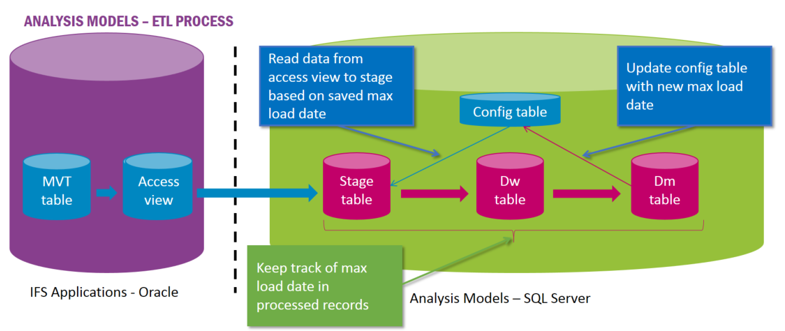
Analysis Models supports a set of pre-packaged OLAP cubes.
OLAP means On-Line Analytical Processing and a cube supports multi dimensional analysis with high end user performance.
Cube specifics
Calculated measures bring additional values such as

Analysis Models contains a set of Reporting Services (SSRS) extensions,
The main purpose with extensions is to support different authentication methods but also to support using IFS Applications as a custom data source in Reporting Services.
Analysis Models contains pre-packaged content. This content is not supported but is still maintained to make it easy to use and demo developed functionality. The following is included:
Ordinary Reporting Services (SSRS ) reports. Example reports exist in all product areas that are supported.
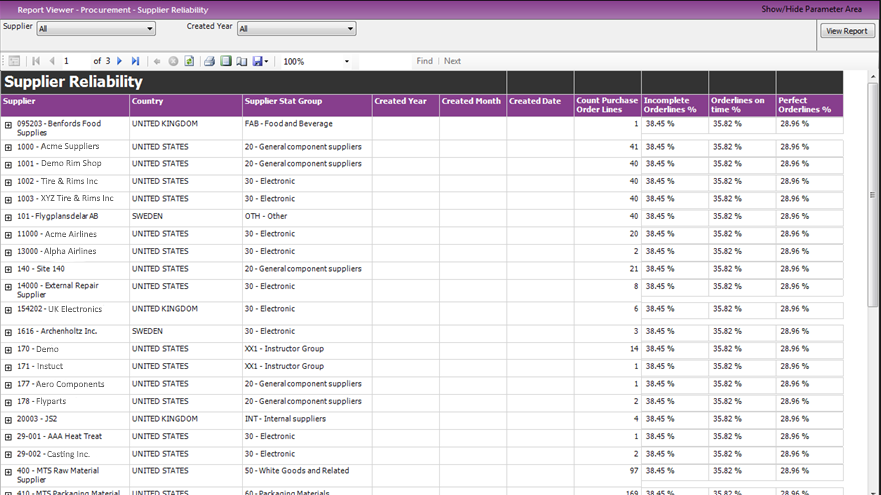
The Excel dashboards are based on Excel 2013 in combination with Analysis Services. Since Excel is a familiar tool, modifications and customizations are rather easily handled.
IFS Applications only support deployment of Excel dashboards to disk.
Example Excel dashboards can be downloaded from the respective Analysis
Models component on the IFS Applications 9 track.
